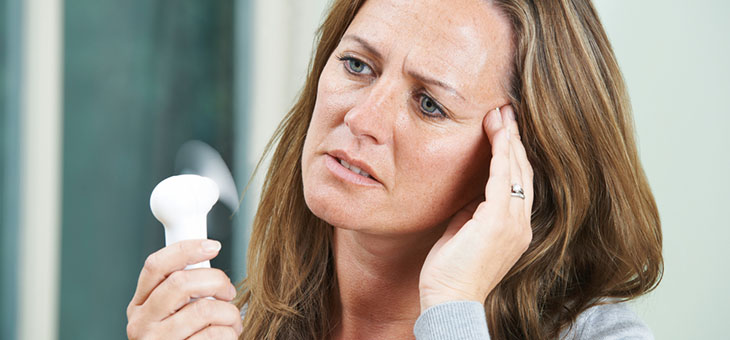Studies examining the association between hot flushes, scientifically referred to as vasomotor symptoms, and breast cancer are not new, but the results have been inconsistent. However, a new larger-scale study concludes that women who had persistent hot flushes are more likely to be diagnosed with breast cancer than women who’ve never experienced the symptoms.
This latest study sought to identify an association between hot flushes and night sweats, and breast cancer. To do so, data was gathered from more than 25,000 women who participated in Women’s Health Initiative trials. The results were recently published in Menopause.
The study followed up all of the women in the study over a course of nearly 18 years and discovered 1399 incidences of breast cancer.
Researchers also found that women with persistent hot flushes (defined as symptoms that lasted 10 or more years) had a higher breast cancer incidence than women who never experienced those symptoms.
Although breast cancer-specific mortality was higher in women with persistent hot flushes, the difference was not statistically significant, which meant that the menopause symptoms did not influence breast cancer survival rates.
The possible link between hot flushes and breast cancer continues to be studied because of a common association with hormones.
Specifically, hormone therapy has proven to be the most effective treatment for hot flushes, whereas sex hormone levels are also related to post-menopause breast cancer risk.
“In this large group of women who were not users of hormone therapy, persistent hot flushes and night sweats for 10 or more years were associated with a slight but significant increase in breast cancer incidence,” explained Dr JoAnn Pinkerton.
“Other risk factors included an elevated body mass index of more than 30 and current alcohol use.
“More studies are needed in women who have persistent hot flushes to understand their cardiovascular and cancer risks.”
Do you still suffer from hot flushes and night sweats? Are you concerned about these findings?
Related articles:
The secrets behind a good cuddle
Best of Jason Lee
Dementia risk in surgery

